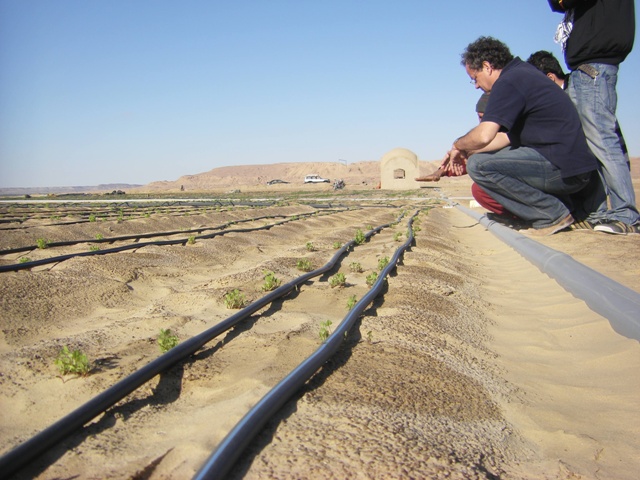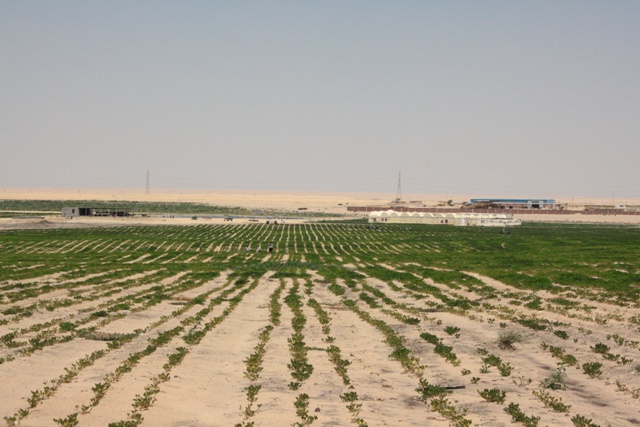Single News
SEKEM initiative receives UN prize in the fight agains soil erosion
CAIRO (NNA) – The Egyptian SEKEM Initiative has received the “Land for Life Award 2015” from the United Nations Convention to Combat Desertification (UNCCD). The prize acknowledges the outstanding contribution of the Initiative to the fight against soil erosion.
In its comments at the conferment of the prize, the UNCCD explicitly praised the use of biodynamic cultivation methods in the recovery of desert floors. “We are very impressed with the success that SEKEM has achieved in the revitilisation of arid regions through the use of biodynamic cultivation methods and the continued work of the Initiative towards sustainable farming,” a SEKEM press release quotes a UNCCD spokesperson as saying.
The award ceremony took place at the “5th International Forum” in the Kubuqi desert in Inner Mongolia. A large number of executives, planners and experts took part at the event, which saw the discussion of new approaches to combatting desertification, erosion and drought. The UN general secretary, Ban Ki Moon, delivered a video message. The “Land for Life Award” was set up by the UNCCD in 2011 to promote innovation in sustainable land use, especially in the field of combatting soil erosion.
Urgent Work
The SEKEM Initiative was represented at the conference by Maximilian Abouleish-Boes. He emphasised that SEKEM accepts the award with much gratitude and considers it to be “further motivation to intensify our efforts in the conservation and restoration of ‘land for life’ in Egypt”.
For 38 years SEKEM has been committed to the restoration of desert soils which it has transformed into fertile farmland through the use of biodynamic agriculture. Its aim is not only to preserve soil fertility, but also to create it.
Helmy Abouleish, chief executive of the SEKEM group, pointed out that the work of the “Land for Life” programm is urgently needed in Egypt. The country, which suffers heavily from desertification, depends on food imports and large parts of the population are already living below the “water poverty line” as defined by the “Water Poverty Index”. Sufficient food for the population was not assured in the long term without ever increasing food imports.
Comprehensive approach
The revitilisation of desert soils is not only important in ecological terms but also helps to promote more general sustainable development that also encompasses social and cultural life. Accordingly, SEKEM wants to meet the demands of an “economy of love”, says Abouleish-Boes, for which the organisation won the Right Livelihood Award, the “Alternative Nobel Prize” awarded by the World Future Council (WFC), in 2003.
The SEKEM Group is a part of the SEKEM Initiative for Sustainable Development, founded in 1977 by Dr. Ibrahim Abouleish. It produces, processes and markets organic and biodynamic food, textiles and herbal medicines for Egypt and the Arab world and also for international markets. It is an organic pioneer in Egypt.
A portion of the profits made by SEKEM companies is used to finance the SEKEM Development Foundation. The infrastructure created by SEKEM in Egypt through the building of schools, a medical centre and the Heliopolis University for Sustainable Development was also highlighted and praised by the UNCCD spokeperson.
END/nna/ung/hva
Item: 151117-03EN Date: 17 November 2015
Copyright 2015 News Network Anthroposophy Limited. All rights reserved.



